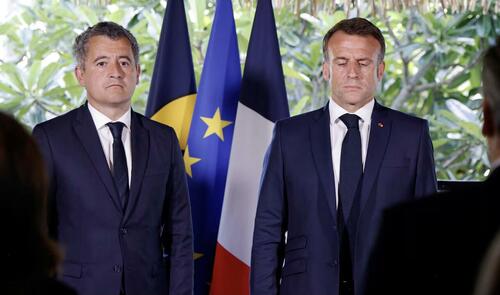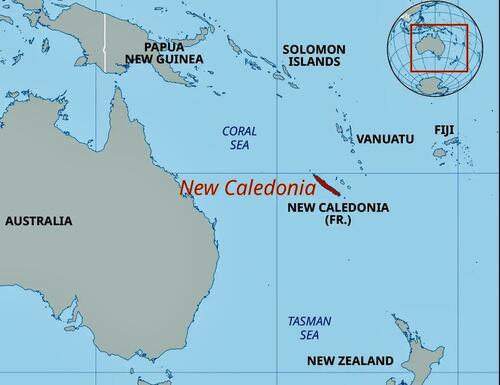Macron Caves To Rioters, Postpones Voting Reform In Nickel-Rich New Caledonia
In the face of more than a week of rioting sparked by a controversial proposal to expand the voting rolls in the French territory of New Caledonia, French President Emmanuel Macron is waving a surrender flag.
The deadly upheaval was sparked when France advanced legislation that would expand the privilege of voting in local elections to all citizens who’ve lived in New Caledonia for more than 10 years. The territory’s pro-independence factions see that move as a deliberate effort to weaken the power of the indigenous Kanaks.
Unrest in New Caledonia continues as French President Emmanuel Macron visits the Pacific island amid rising tensions. Protesters continue to block several roads, while riot police and military vehicles patrol the streets of the capital, Nouméa.
At least six people have been… pic.twitter.com/n3UJpAOoA4
— red. (@redstreamnet) May 23, 2024
In its initial response to widespread rioting, looting, roadblocks and arson that targeted police and private businesses alike — and killed at least six people — France deployed troops, more than a thousand additional police officers and banned the social media platform TikTok. Australia and New Zealand sent aircraft to the territory to evacuate their citizens, while the international airport in the capital of Noumea remained closed to commercial traffic.
This week, Macron traveled to the territory that’s about 900 miles east of Australia. After discussions with local political leaders, Macron committed to delaying — but not terminating — implementation of the voting reform. “I am committed to ensuring that this reform will not be implemented by force,” he said, telling reporters that he wanted the reform to be accompanied by broader agreement among constituencies about the future of the territory.
New Caledonia has a population of some 271,000 people, with roughly one in four identifying as European. There’s a substantial independence movement among the native Kanaks, who reasonably see the expansion of the non-native electorate as something that would thwart their dreams of secession.
A 1998 accord provided some degree of autonomy to the multi-island territory, which has three representatives in the French legislature.The population has voted against independence in three referendums, the most recent of which was held in 2021. According to the Globe and Mail, both China and Russia have cultivated relations with New Caledonia’s independence movement. However, claims that the latest unrest is the fruit of “foreign interference” should be viewed with skepticism.

Meanwhile, uncertainty continues to swirl around New Caledonia’s production of nickel — an important commodity for electric vehicle batteries, as well as stainless steel. The territory is home to the fifth-largest nickel reserve in the world. Most of the nickel mines have suspended operations, and world nickel prices surged to nine-month highs as the unrest unfolded, before retreating.
Even before the political strife, New Caledonia’s nickel industry was already on the ropes. Its three processing facilities have been in dire financial straits, prompting negotiations for French bailouts.
Macron appears to have been highly motivated to steer the world’s attention away from a smoldering vestige of the once-mighty French empire — and shut down an uprising could attract global sympathy and support for New Caledonia’s indigenous population.
Tyler Durden
Fri, 05/24/2024 – 09:10
via ZeroHedge News https://ift.tt/LSaQgOe Tyler Durden
